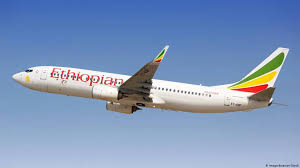The Nigerian Federal Government’s ambitious plan to transform the Murtala Muhammed Airport in Lagos into a major transit hub marks a significant step towards bolstering the nation’s aviation industry and solidifying its position as a key player in African commerce. This strategic move aims to capitalize on the increasing demand for air travel within the continent and establish Lagos as a preferred connecting point for passengers traveling to and from various destinations. The government envisions this development as a catalyst for economic growth, attracting increased investment and creating numerous job opportunities within the aviation sector and related industries. The hub’s establishment will streamline passenger flow, reducing transit times and enhancing the overall travel experience, thus positioning Nigeria as a competitive force in the global aviation landscape.
The timing of the announcement coincides with Ethiopian Airlines’ launch of its second daily flight to Lagos, underscoring the growing interest in the Nigerian aviation market and the potential for increased connectivity. This move by Ethiopian Airlines, a leading African carrier, demonstrates confidence in Nigeria’s aviation sector and its growth prospects. The airline’s continued commitment to Nigeria, even during challenging periods like the COVID-19 pandemic, further solidifies its strong ties with the country. The increased flight frequency not only enhances passenger convenience but also strengthens trade and tourism links between Nigeria and other parts of Africa and the world. This increased connectivity facilitated by Ethiopian Airlines plays a vital role in supporting Nigeria’s economic diversification efforts and promoting regional integration.
The Federal Government’s proactive invitation to other international airlines to operate in Nigeria reflects its commitment to fostering a competitive and vibrant aviation sector. By opening its airspace to more airlines, Nigeria aims to enhance connectivity, provide travelers with greater choice and affordability, and stimulate further growth in the industry. This open-door policy signals the government’s confidence in the potential of the Nigerian aviation market and its readiness to attract foreign investment. The increased competition brought about by the entry of new airlines will drive innovation and ensure improved service quality for passengers, ultimately benefiting the Nigerian economy and its integration into the global aviation network.
Ethiopian Airlines’ commitment to supporting tourism development in Nigeria further strengthens the partnership between the airline and the country. The airline’s recognition of Nigeria’s rich cultural heritage and vibrant tourism sector, as evidenced by its interest in promoting local festivals like Detty December, Carnival Calabar, Ojude Oba, and Durbar Festivals, highlights the potential for growth in this area. By leveraging its extensive network and marketing capabilities, Ethiopian Airlines can play a crucial role in attracting international tourists to Nigeria, boosting the country’s tourism revenue and creating employment opportunities within the sector. This collaboration between the airline and the Nigerian tourism industry represents a mutually beneficial partnership that can contribute significantly to the diversification of the Nigerian economy.
The government’s vision of transforming Lagos into a major aviation hub aligns with its broader objective of positioning the city as a prominent commercial center in Africa. By establishing a world-class transit hub, Nigeria aims to attract businesses, investors, and tourists, contributing to the economic growth and development of the region. The increased connectivity and ease of travel facilitated by the hub will make Lagos a more attractive destination for international commerce and cultural exchange. This will further enhance Nigeria’s position as a gateway to Africa, strengthening its role in regional trade and fostering closer ties with other countries.
The commitment of both the Nigerian government and Ethiopian Airlines to enhancing aviation connectivity signifies a positive trajectory for the Nigerian aviation sector. The establishment of the Lagos transit hub, coupled with Ethiopian Airlines’ increased flight frequency and commitment to supporting tourism, creates a synergistic effect that can significantly contribute to Nigeria’s economic growth and development. By fostering a competitive aviation market, attracting foreign investment, and promoting tourism, Nigeria is positioning itself as a key player in the African aviation landscape and strengthening its role in the global economy. This collaborative approach involving government initiatives and private sector participation sets the stage for sustained growth and development within the Nigerian aviation industry.














